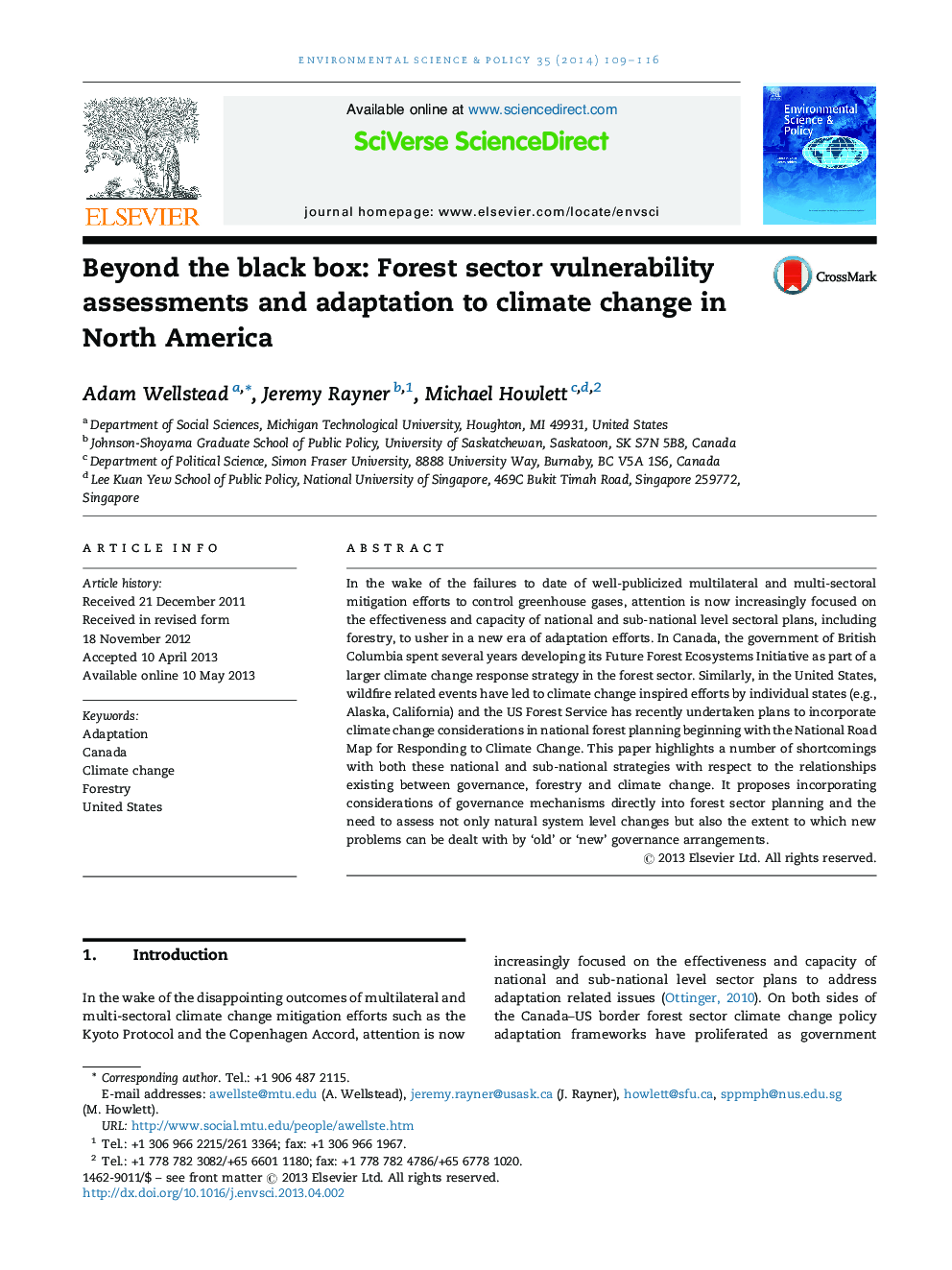| Article ID | Journal | Published Year | Pages | File Type |
|---|---|---|---|---|
| 1053566 | Environmental Science & Policy | 2014 | 8 Pages |
In the wake of the failures to date of well-publicized multilateral and multi-sectoral mitigation efforts to control greenhouse gases, attention is now increasingly focused on the effectiveness and capacity of national and sub-national level sectoral plans, including forestry, to usher in a new era of adaptation efforts. In Canada, the government of British Columbia spent several years developing its Future Forest Ecosystems Initiative as part of a larger climate change response strategy in the forest sector. Similarly, in the United States, wildfire related events have led to climate change inspired efforts by individual states (e.g., Alaska, California) and the US Forest Service has recently undertaken plans to incorporate climate change considerations in national forest planning beginning with the National Road Map for Responding to Climate Change. This paper highlights a number of shortcomings with both these national and sub-national strategies with respect to the relationships existing between governance, forestry and climate change. It proposes incorporating considerations of governance mechanisms directly into forest sector planning and the need to assess not only natural system level changes but also the extent to which new problems can be dealt with by ‘old’ or ‘new’ governance arrangements.
